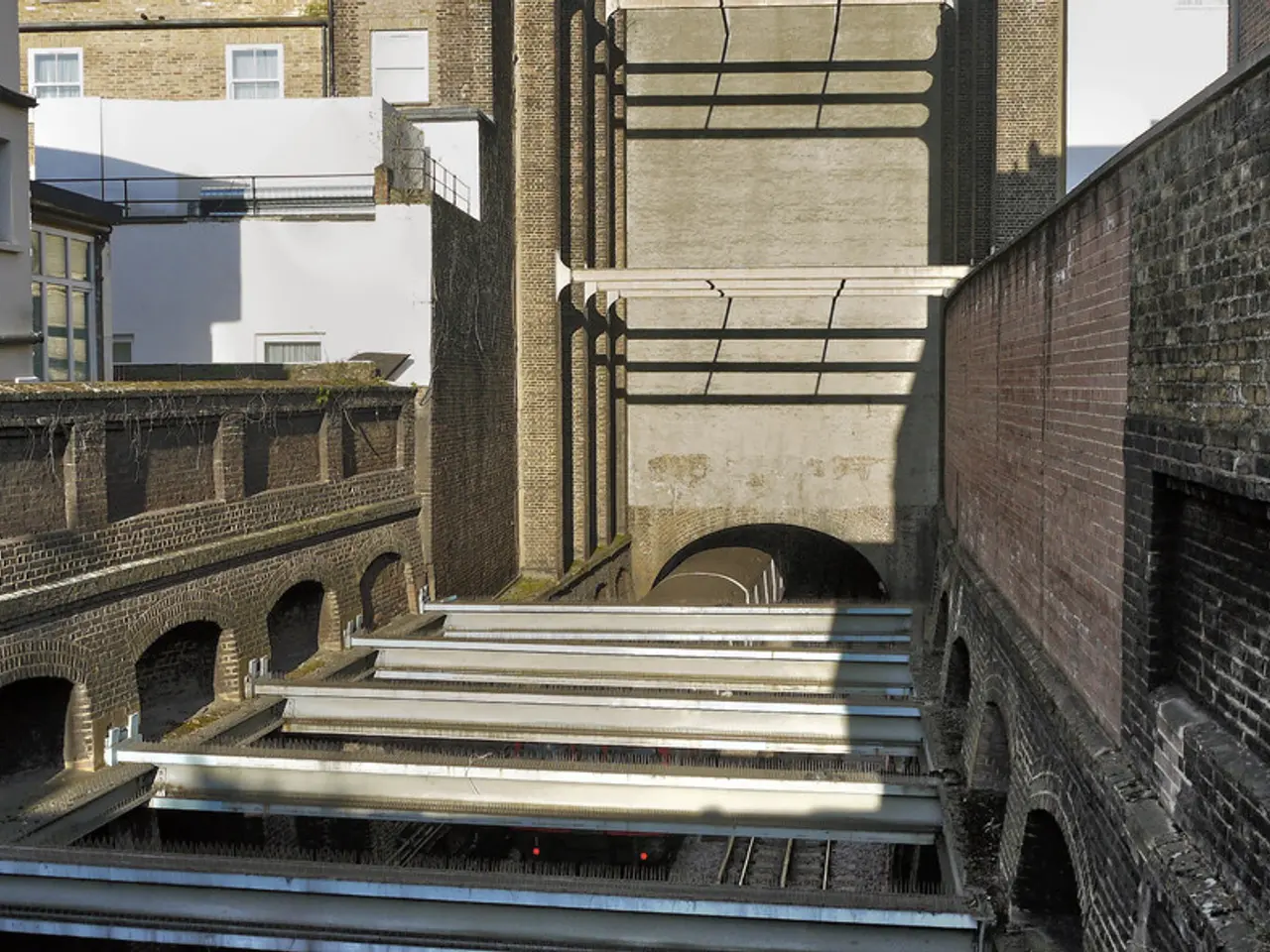Is there a possibility that the South African construction industry might serve as a sacrificed participant within the BRICS union?
The Western Cape Property Development Forum (WCPDF), a registered non-profit organisation founded in 2008, has been vocal about the potential impact of large-scale infrastructure projects on the local construction industry. One such project is the upgrade of the Huguenot Tunnel on the N1.
The WCPDF, which focuses on private and public property projects and associated infrastructure provision in the Western Cape, has expressed concern that the tender document for the Huguenot Tunnel project contains strict criteria that could exclude the majority of South African contractors. The organisation also raised red flags about the compilation and awarding of tenders, citing examples like the Ashburton Interchange in KZN and the Mtentu Bridge in the Eastern Cape, where Chinese companies disqualified earlier in the bidding process were ultimately granted the contracts.
The skills necessary for the Huguenot Tunnel project, including tunnel lining, ventilation, and lighting, existed among South African companies at the time the project did not materialize over a decade ago. The question of opportunities for South Africans remains a concern, as it is unclear how much South African professionals and labor will benefit from these large-scale projects.
The South African property development and construction industry has faced significant challenges for decades, including rising material costs, declining private investment, standstills in policy making and procurement, and the presence of a construction mafia. These challenges have led to a decrease in labour opportunities, an exodus of professional skills abroad, and the closure of many companies, including giants in the industry.
The WCPDF aims to be the collective voice of the property development and construction industry in the Western Cape, representing its interests, interpreting and facilitating understanding between the authorities and the industry, informing its membership of changes in legislation and policies, promoting education and transformation within the industry, and creating a public profile and understanding of the industry.
In addition to the concerns about the Huguenot Tunnel project, the WCPDF has also raised concerns about the potential for the South African construction industry to become a sacrificial lamb for multi-billion rand infrastructure investments from abroad, particularly those being initiated by SANRAL. The organisation has also expressed concern about Chinese construction companies classifying themselves as South African companies when competing for large-scale tenders, and bringing not only their professionals but labor from abroad.
Over the past few years, South Africa has seen an increase in major construction deals being signed with China as part of BRICS. In response to the 17th BRICS Summit, South Africa has fast-tracked visa applications for "critical skills workers" in response to the focus on investors and highly skilled engineers. However, the WCPDF demands clarification on which companies are selected for the modernization of the Huguenot Tunnel on the N1 and what role South African professionals and workers play in the execution of this project.
The National Union of Mineworkers (NUM) has a significant membership in the construction sector, constituting 11% of its total membership. In June 2025, the NUM raised concerns about Chinese construction companies classifying themselves as South African companies by the Construction Industry Development Board. Mpho Phakedi, NUM secretary-general stated that Chinese construction companies are being graded as South African companies by the Construction Industry Development Board.
The WCPDF engages and lobbies politicians and government representatives, making them aware of the ramifications that decision-making processes and service delivery have on property development and construction, and the economy and job creation. As the WCPDF continues to advocate for the interests of the South African construction industry, it will be interesting to see how the Huguenot Tunnel project unfolds and what impact it will have on the industry and the economy.
Read also:
- ICE directed to enhance detention conditions following NYC immigrants' allegations of maltreatment
- Israeli finance minister issues warnings about potential annexation of West Bank territories
- United States faces rebuttal from South Africa over allegedly deceitful human rights report and assertions of land expropriation
- Accident at Rodalben Results in Injuries; Geoskop Area near Kusel Affected After Stormy Weather








